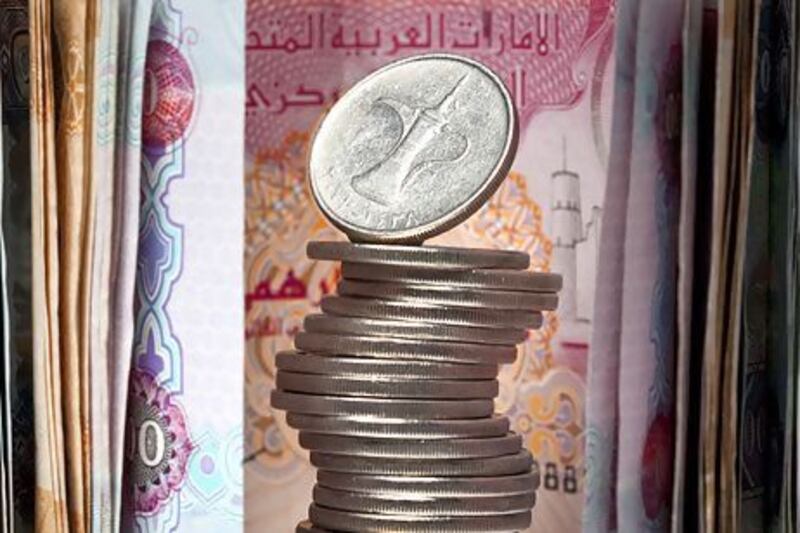The Central Bank is preparing to begin trials for how the UAE federal credit bureau will operate.
The pilot programme is being prepared to start in July ahead of a widespread roll-out next year, according to senior bankers briefed on the plans, who said the move would change the face of banking in the Emirates.
Banks, politicians and regulators have pushed for the creation of a federal credit bureau as a way of reducing lenders' reliance on post-dated cheques being used as a means of security for loans.
All banks had been consulted and were being invited to participate in the scheme, said Tom Smith, the group head of retail banking at United Arab Bank. "The credit bureau is a pilot programme, not everybody is involved in it initially," he said.
"They initially picked a number of banks, then they allow any bank that wants to be involved. There's pluses and minuses to that."
A credit bureau allows lenders to more accurately assess the risk that customers will default by providing banks with details of their borrowing history.
Currently, banks rely on security cheques from customers before the lenders are willing to lend to them. Missing a cheque payment is a criminal offence, although Emiratis are immune from serving jail time for doing so.
A total of 1.4 million cheques failed at the point of use last year, representing payments of Dh46.8 billion (US$12.74bn), or one in every 20 cheques used.
However, bankers have also cited the lack of a federal credit bureau as a reason why average annual interest rates on a UAE credit card, which are not backed by cheques, stand at 37.7 per cent, compared with a rate of 17.5 per cent in the United Kingdom.
A soft launch of the federal credit bureau had been planned for 10 participating banks, but this was later increased to 13 to include several major consumer lenders, said a senior banker, speaking on condition of anonymity.
"This is designed to ensure that all the data is working and to iron out any bugs," the banker said. "But it's important to realise there are going to be no early quick wins out of this. Bureau scores [are not] going to be produced until well into next year."
The scheme may be expanded to include small and medium enterprises, as well as telecoms and utility companies, to build a more complete view of customers' ability to repay, the banker added.
The Central Bank declined requests for comment.
Separately, it said yesterday that failed cheque payments fell to 4.7 per cent of the total presented in the first quarter of this year, equivalent to Dh15bn, and down from 5.06 per cent during the preceding quarter.
When the credit bureau is operational it will ultimately allow lenders to rate individuals, rather than discriminate based on factors that customers are powerless to control, said Praveen Bandekar, the head of the retail product division at Union National Bank.
"The credit bureau will help us to improve our market," he said. "Today you're doing mass pricing. We think a particular organisation or group of people gets written off by an aberration - when one big ticket defaults, you're taking a decision on the entire group of people. That's not fair."
In 2006, Dubai established its own credit bureau for the emirate, Emcredit, but this has been dissolved to pursue the creation of a federal entity that can rank the creditworthiness of bank customers across the country.
However, there are concerns that smaller banks' ability to access the bigger lenders' database of customers could lead them to become reluctant to share information for fear of losing their best clients.
The move follows the establishment of a direct debit scheme, a method permitting easier processing of regular payments.
The Central Bank is preparing to roll out a nationwide direct debit scheme allowing for automatic payments of mortgage, personal loans and credit card bills on June 15, following another successful pilot programme.





